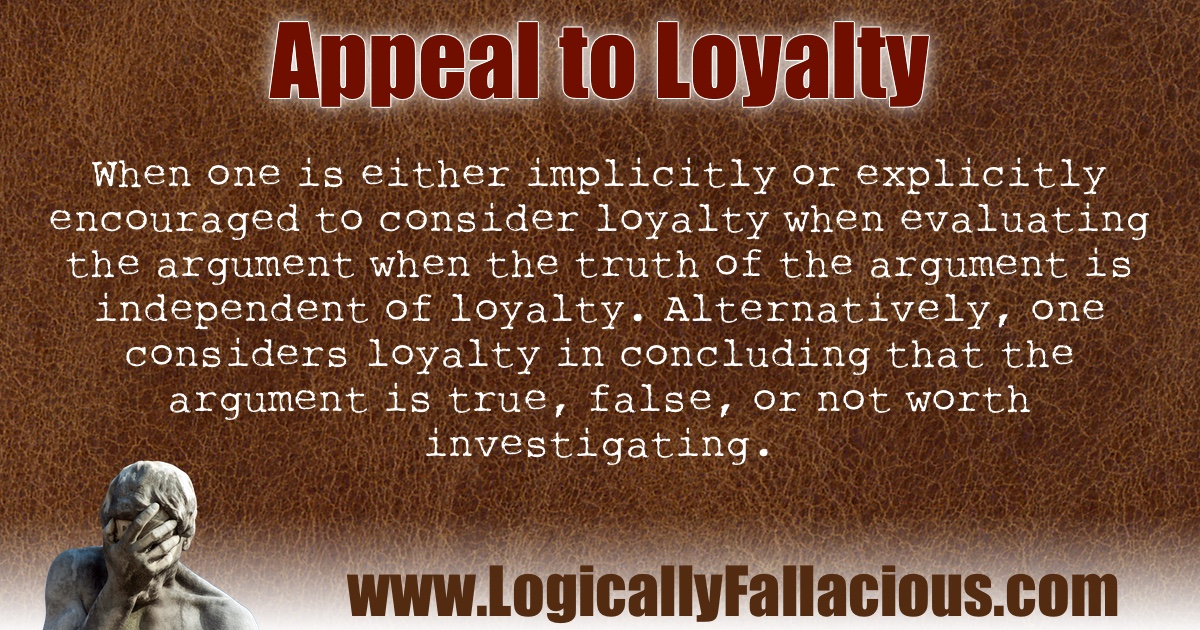Description: When one is either implicitly or explicitly encouraged to consider loyalty when evaluating the argument when the truth of the argument is independent of loyalty. Alternatively, one considers loyalty in concluding that the argument is true, false, or not worth investigating.
Logical Form:
X is loyal to Y.
Y makes false claim Z.
Therefore, X accepts Z as true due to X’s loyalty to Y.
Y makes false claim Z.
It is implied that disagreeing with Y is disloyal.
Therefore, X does not question claim Z out of loyalty.
Example #1: Cult leaders appear to have a magical level of influence over their followers. They can do no wrong, and anything they say must be true. This mindset is enforced by rewards and punishments related to loyalty. When Jim Jones claimed that hostile forces would convert captured children of the cult to fascism, no fact-checking was involved. Out of loyalty to the leader, Jones’ followers reasoned that suicide was a better alternative and “drank the Kool-Aid” (Flavor Aid). Nine hundred and nine inhabitants of Jonestown died of apparent cyanide poisoning. Three hundred and four of them were children.
Example #2:
Liberal Friend: Posts fake quote allegedly by a conservative.
Me: Asks for a source because the quote is unbelievable.
Liberal Friend: Refuses to seek the source because it “sounds like something [this conservative] would say.”
Explanation: While my liberal friend did not insist the quote was true, he did refuse to investigate it further out of loyalty to his ideological position. In both politics and religion, people on social media uncritically accept or reject information based on loyalty to their ideology. These are implied arguments rather than explicit arguments. The implication is that because the information is in-line with/goes against the person’s ideology, it must be true/false. This is a form of confirmation bias that is applied to a specific argument.
Exception: There is no fallacy when one claims to follow someone or support them out of loyalty; the fallacy is committed when loyalty is considered in their evaluation of a truth claim.
Tip: Be loyal to truth and reason, even if it is seen as disloyalty to an ideology.

References:
This is a logical fallacy frequently used on the Internet. No academic sources could be found.
Questions about this fallacy? Ask our community!